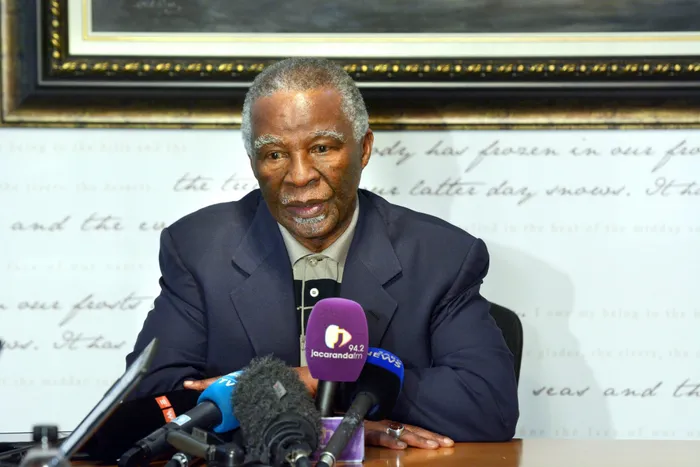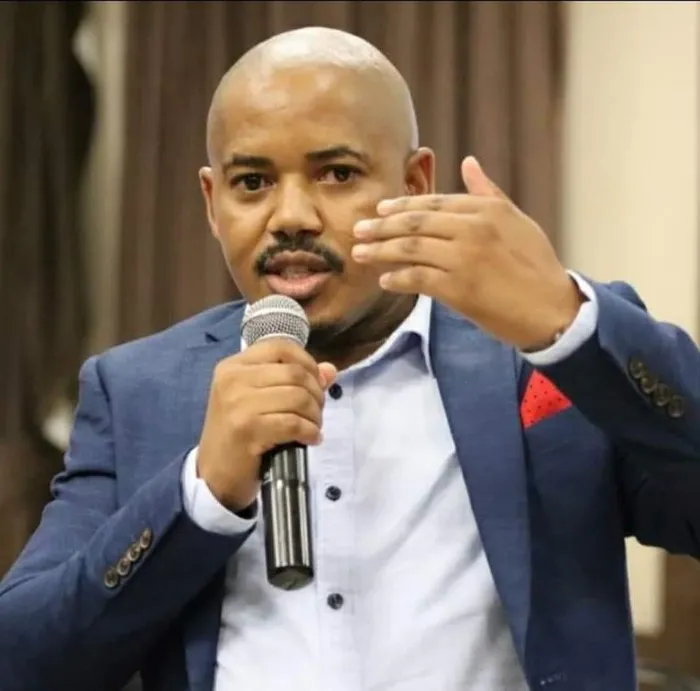Synoptic analysis and expectations: The annual Thabo Mbeki Africa Day Lecture

Africa needs to rid itself of leaders who thrive on populist and ethnic politics.
Image: Karen Sandison
This annual lecture is hosted by the Thabo Mbeki Foundation, alongside the University of South Africa (UNISA) and other stakeholders, on the founding date of the Organisation of African Unity (OAU), which is the precursor to the African Union (AU).
This strategic gathering offers a unique opportunity for the TM Foundation to critically assess Africa’s progress and commitment, and to deeply analyse the continent’s pressing challenges in the quest for Africa’s renaissance (rebirth) through realising political, socio-economic, and cultural self-reliance.
Therefore, this article synoptically analyses Africa’s progress and reflections of Abdoulaye Bathily on the critical and pressing challenges he raised as a keynote speaker at the 14th Thabo Mbeki Africa Day lecture 2024.
The article also delves into the 12th May 2025 press briefing by the AU chairperson of the commission, His Excellency Mahmoud Ali Youssouf. The reflections by these two patriots call for succinct reflection and analysis that sets the tone for the 15th Thabo Mbeki Africa Day lecture that will be held under the theme “State of the Continent” within the context of reigniting Africa’s renaissance in Tanzania this weekend.
Professor Bathily expressed concerns that Africa remains culturally downtrodden and politically, economically, and militarily dependent on European countries despite attaining independence more than sixty years ago.
He primarily attributes this lack of progress and the new scramble for Africa to the ongoing leadership crisis on the continent.
He further argues that Africa needs to rid itself of leaders who thrive on populist and ethnic politics.
The continent requires new leaders who can revive the liberation and Pan-African project.
In my view, although the AU and others oppose the coups that have occurred in West Africa, particularly in the Sahel region, the masses in Mali, Niger, and Burkina Faso have become impatient with the colonial ties to their former coloniser, France, and have resolved to identify themselves as Sankarists, committed to completing the decolonial struggle initiated by the late President Thomas Sankara in Burkina Faso.
Therefore, inasmuch as I believe in the democratically elected leadership, but to a certain extent, one is tempted to stand with those Sankarists because, in October 2024, the TM Foundation convened the inaugural Peace and Security Dialogue in South Africa, which I attended and participated in.
The dialogue focused on peace and security in the West and the Horn of Africa.
On the same date as the dialogue, France convened a Francophonie festival and summit in Paris to celebrate the French language and strengthen relations among the world's French-speaking countries; thus, some leaders in West Africa chose the meeting in Paris over the critical peace and security dialogue.
It was indicated that, although West Africa was an area of focus for the dialogue, it was not well represented.
This affirms the assertions that African leaders have abandoned the liberation and Pan-African agenda.
This confirms what Prof Bathily stated, that African heads of state can leave the meeting of the AU and be convened by one head of state. Therefore, President Sankara and Ibrahim Traore must multiply, on the continent to extricate Africa from neo-colonial bondage.
Once again, Prof Bathily argues that Africa has numerous partnerships with European countries and entities for development; however, natural resources depart the continent, but Africa continues to experience stagnation in economic growth and development.
The question is, how strategic are those Africa’s partnerships for the AU’s Agenda 2063? I assert that the AU and its member states should contemplate establishing criteria and reviewing these partnerships in light of the AU Agenda 2063.
This is feasible, as a multipolar world creates space for emerging actors who could serve as competitors to the current exploitative one and possibly be partners for genuine Africa’s development.
Additionally, a concerning factor is the increasing presence of foreign military bases on the continent, which arrived under the pretext of combating the rise of violent extremism and acts of terrorism.
However, the reality is that the military weapons provided are fuelling instabilities on the continent.
On the other hand, there is a contradiction; for example, African leaders claim to be investing in agriculture to fight hunger and poverty, but continue to auction land to private multilateral companies in exchange for foreign direct investment.
In return, these so-called investors practice agriculture solely for maximising profit at the expense of the suffering and hungry masses.
Bathily says African land must be given to conscious African farmers who would understand that the land, especially agriculture, must feed Africans before being exported.
On 12 May 2025, the newly elected chairperson of the AU Commission, Mahmoud Ali Youssouf, held a press briefing that I viewed as an opportunity for him to outline his detailed plans; regrettably, he provided an overview of strategic priorities without a clear plan of action.
For instance, regarding issues related to the Commission on Political Affairs, Peace and Security (PAPS), the chairperson merely identified a few African countries in conflict and the dialogues occurring to resolve those conflicts.
He noted that he would soon meet with the foreign affairs ministers from Sahel countries to seek lasting peace in the region. This PAPS has a considerable workload, as Africa accounts for almost 70% of global conflicts.
I strongly contend that the AU’s decision to merge the Department of Political Affairs with Peace and Security lacked strategy, as the current focus leans more towards peace and security.
In my view, the AU should reconsider its decision and separate the commissions so that Political Affairs could lead the revival of the liberation and Pan-African project, as Prof Bathily suggests. Therefore,
I am hopeful that the 15th Thabo Mbeki Africa Day Lecture, themed “the state of the continent,” will take stock of the previous lectures, developments within the G20, and the political, socio-economic, violent conflict and cultural developments, leadership crisis on the continent within the context of the geopolitical shifts and a multipolar world.
The New Partnership for Africa’s Development should be resuscitated and Africanised to drive the continental development.
Orapeleng Matshediso is a Masters graduate of Pan African Development Studies and Research Associate at the University of Johannesburg (Institute for Pan African Thought and Conversation). The author is also an alumnus of the then Thabo Mbeki African Leadership Institute (TMALI) and writes in his capacity.

Orapeleng Matshediso is a Masters graduate of Pan African Development Studies and Research Associate at the University of Johannesburg (Institute for Pan African Thought and Conversation).
Image: Supplied.
BUSINESS REPORT